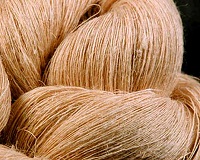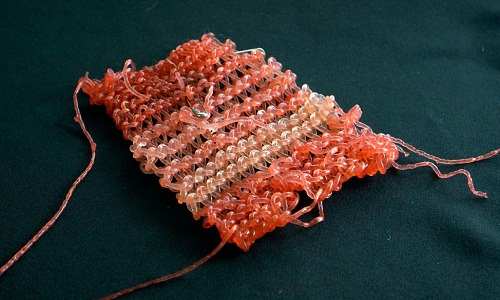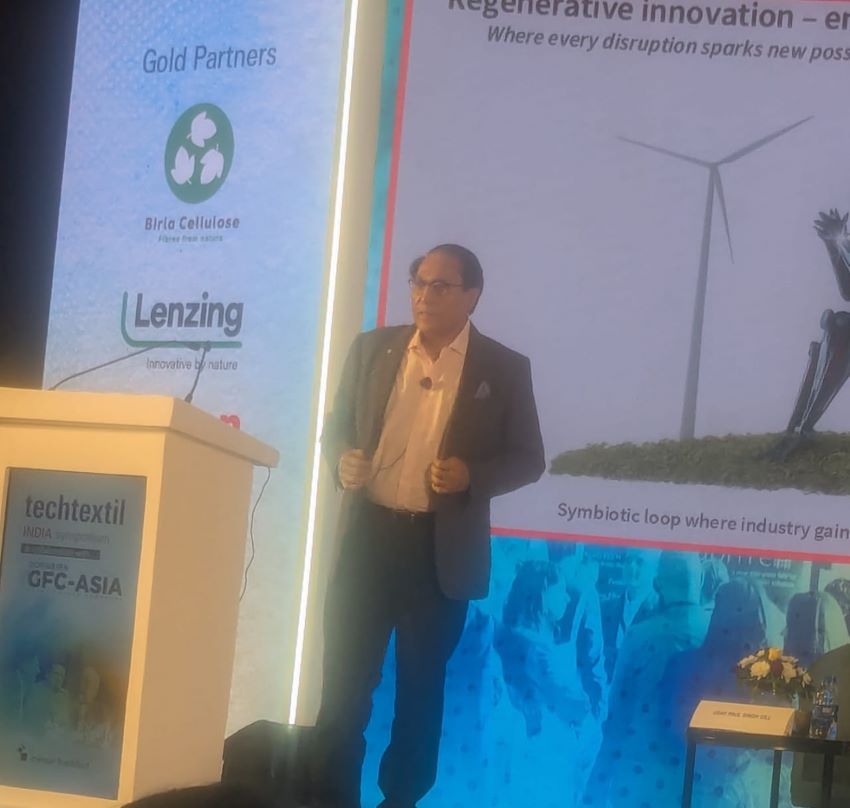"Buoyed by growing eco-concerns, researchers, companies as well as associations have been coming up with the innovative offerings. Some of them include biodegradable glitter, kelp fibres and ethical product apps. Fashion for Good Plug and Play Accelerator, a 12-week startup accelerator based in Amsterdam focuses on environmental and social impact within the fashion industry, has announced its third batch of startups. These startups will participate in a curriculum that involves mentorship from the Accelerator’s partners, which include Adidas, C&A, Galeries Lafayette, Kering, Target and Zalando."

Buoyed by growing eco-concerns, researchers, companies as well as associations have been coming up with the innovative offerings. Some of them include biodegradable glitter, kelp fibres and ethical product apps. Fashion for Good Plug and Play Accelerator, a 12-week startup accelerator based in Amsterdam focuses on environmental and social impact within the fashion industry, has announced its third batch of startups. These startups will participate in a curriculum that involves mentorship from the Accelerator’s partners, which include Adidas, C&A, Galeries Lafayette, Kering, Target and Zalando. The aim is to positively reshape the fashion industry’s materials, operations and products. Over the next three months, the Accelerator’s partners will prime the startups’ technologies and innovations for implementation at scale.

The Accelerator will also screen each startup for potential funding to support their business development initiatives. On June 14, the startups will graduate at the Fashion for Good hub in Amsterdam, where they will show their developments to industry leaders and potential investors. For this set of startups, innovators represent varied fashion supply chain areas spanning alternative raw materials to sustainably designed business models, including biodegradable glitter startup BioGlitz and industrial upcycling platform Reverse Resources.
Bio-based materials
Batch 3 has some startups that are changing the bio-based materials game by re-imagining the fashion supply chain with natural and biodegradable innovations. AlgiKnit is producing textile fibres expelled from kelp. The startup’s extrusion process yields a kelp-based thread that can be knitted or 3D printed to minimise post-production waste. Algiknit’s final knitwear is also biodegradable. Kapok fibre fabrics and yarns are the ongoing project of Flocus, which aims to offer the fashion industry a more sustainable alternative to high-water-consumption fibre crops. A benefit of the kapok tree is that it is able to grow without the use of pesticides in arid soil and other difficult farming areas.
While other purveyors experiment with leather alternatives, Frumat is using apples to create a leather-like material. Unlike other industrial waste products, apple pectin could be used to develop eco-friendly materials that are durable enough for accessories and compostable after use. Apple pectin leathers can be dyed and tanned without the use of harmful chemicals. Animal welfare remains a concern in the fashion industry and Provenance Biofabrics is re-imaging leather materials for a more sustainable outcome. According to Fashion for Good, Provenance bio-engineers a leather-like material by programming the self-assembly of collagen molecules.
Microfibre pollution has also been an issue for the sector, and Mango Materials is offering biodegradable bio-polyester as a solution. Compared to conventional polyester used in most garments, Mango Materials’ bio-polyester, made from waste biogas (methane), can biodegrade in landfills, wastewater treatment plants and oceans, minimising fashion’s carbon footprint in the process.
Orange Fiber is turning citrus by-products into natural fabrics. The startup is making fibre by extracting the cellulose from fibres discarded processed oranges. Nanotechnology techniques enrich Orange Fibers with citrus fruit essential oils that provide an alternative to conventional fibres made with chemical processes.
BioGlitz is producing biodegradable glitter as an alternative to other manufactured garment materials. The eco-glitter, which is compostable, is based on a biodegradable formula made from eucalyptus tree extract. Paptic is changing the game for retail shipping with its bio-based alternative packaging materials. Paptic’s materials, made from sustainably sourced wood fibers, have a much higher tear resistance than paper, can be recycled alongside cardboard and minimise the use of plastic packaging waste in the industry.
Circular technology feat
Circular.fashion has developed a software that connects circular design, circular retail models and closed loop recycling techniques so fashion brands can design sustainable garments. Circular apparel products feature a circularfashion.ID that provides information to customers and textile recycling companies about the garment’s material origins. Adding to the circularity efforts, Nano Textile is leveraging technology to create an alternative to binder chemicals used in fabric finishing. Its technology uses a process called cavitation that embeds finishes directly into the fabric. The technology is applicable to many types of products, including antibacterial finishes.
Laundering garments could become more sustainable with PlanetCare’s microfiber filter for washing machines. Through membrane nanotechnology, PlanetCare’s filter captures microfibers before they are released into wastewater. As a fashion rental marketplace, Style Lend leverages AI and machine learning to match users based on style and fit. The service enables consumers to rent out garments and in return, reduce clothing discarded in landfills. For consumers concerned about the origins of their products, Good on You is a mobile app that provides fashion brands’ ethical ratings. Good on You’s rating system ranks fashion brands based on a 5-point score that leverages their certifications, publicaly available data and environmental impact.












